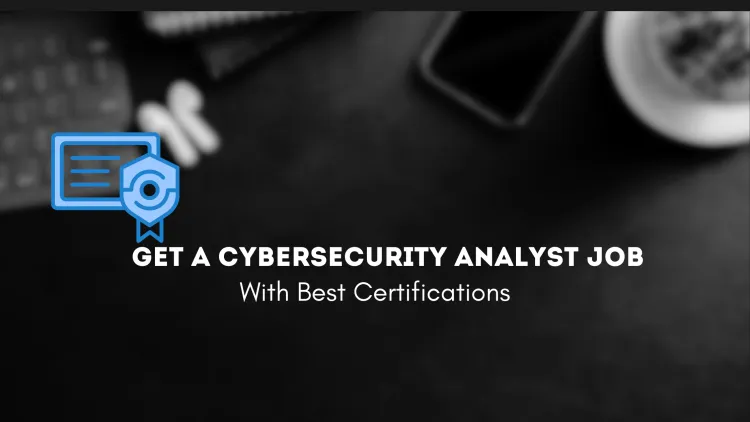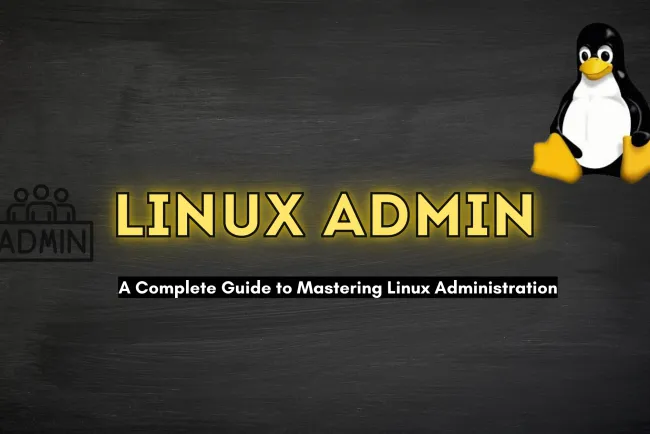What Certifications Can Help Me Get an SOC Analyst Job? The Comple Guide
Certifications play a crucial role in advancing your career as a Security Operations Center (SOC) Analyst. They validate your skills in areas like threat detection, incident response, and security monitoring, and help you gain credibility in the cybersecurity field. Popular certifications such as CompTIA Security+, Certified SOC Analyst (CSA), and GIAC Certified Incident Handler (GCIH) are highly valued by employers. Depending on your experience level, there are various certifications tailored to your specific needs, from foundational to advanced roles. This blog explores the top certifications for SOC Analysts, how to choose the right one, and the benefits of earning them for your career progression.

The role of a Security Operations Center (SOC) Analyst is pivotal in ensuring an organization's security posture. SOC Analysts are responsible for monitoring, detecting, and responding to cyber threats. If you’re aspiring to become an SOC Analyst, earning relevant certifications can give you the knowledge and credibility needed to stand out. In this blog, we’ll explore the certifications that can pave the way for a successful SOC Analyst career and how they align with the skills required for the role.
Why Certifications Are Important for SOC Analysts
Certifications validate your knowledge and skills, demonstrate your commitment to the field, and provide a competitive edge. For SOC Analysts, certifications focus on areas such as threat detection, incident response, and security monitoring.
Here are the benefits of certifications:
- Industry Recognition: Certifications from reputable organizations are highly valued by employers.
- Skill Validation: They ensure you meet the technical requirements of an SOC Analyst role.
- Career Advancement: Certifications often lead to better opportunities and higher salaries.
- Networking Opportunities: They help you connect with industry professionals.
Top Certifications for SOC Analysts
1. CompTIA Security+
- Who Should Take It: Beginners starting in cybersecurity.
- Skills Covered: Network security, threat management, and cryptography.
- Exam Details: 90 questions, multiple-choice and performance-based.
- Why It’s Relevant: Provides foundational knowledge required for SOC Analyst roles.
| Feature | Details |
|---|---|
| Cost | $392 USD |
| Experience Level | Entry-level |
| Certification Validity | 3 years |
2. Certified SOC Analyst (CSA)
- Who Should Take It: Professionals specifically targeting SOC roles.
- Skills Covered: SOC processes, incident handling, and log monitoring.
- Exam Details: 100 questions, 3 hours.
- Why It’s Relevant: Tailored to SOC operations and tools.
| Feature | Details |
|---|---|
| Cost | $300 USD |
| Experience Level | Beginner to intermediate |
| Certification Validity | 3 years |
3. Certified Ethical Hacker (CEH)
- Who Should Take It: Intermediate-level professionals focusing on threat hunting and vulnerability management.
- Skills Covered: Ethical hacking, penetration testing, and vulnerability assessment.
- Exam Details: 125 questions, 4 hours.
- Why It’s Relevant: Equips you with skills to identify and mitigate potential threats.
| Feature | Details |
|---|---|
| Cost | $950 USD |
| Experience Level | Intermediate |
| Certification Validity | 3 years |
4. Splunk Core Certified User
- Who Should Take It: Those working with SIEM tools like Splunk.
- Skills Covered: Data monitoring, log analysis, and search functionality in Splunk.
- Exam Details: 65 questions, 60 minutes.
- Why It’s Relevant: Hands-on expertise with SIEM tools is critical for SOC roles.
| Feature | Details |
|---|---|
| Cost | $125 USD |
| Experience Level | Entry to intermediate |
| Certification Validity | No expiration |
5. GIAC Certified Incident Handler (GCIH)
- Who Should Take It: Professionals focusing on incident response.
- Skills Covered: Incident detection, threat containment, and mitigation.
- Exam Details: 106 questions, 4 hours.
- Why It’s Relevant: Provides advanced skills in handling and analyzing incidents.
| Feature | Details |
|---|---|
| Cost | $2,499 USD |
| Experience Level | Intermediate to advanced |
| Certification Validity | 4 years |
6. CompTIA CySA+ (Cybersecurity Analyst)
- Who Should Take It: Intermediate-level professionals with a focus on threat management.
- Skills Covered: Behavioral analytics, threat detection, and proactive defense.
- Exam Details: 85 questions, 165 minutes.
- Why It’s Relevant: Focuses on the day-to-day tasks of a SOC Analyst.
| Feature | Details |
|---|---|
| Cost | $392 USD |
| Experience Level | Intermediate |
| Certification Validity | 3 years |
7. Certified Information Systems Security Professional (CISSP)
- Who Should Take It: Experienced professionals aiming for advanced roles.
- Skills Covered: Security operations, risk management, and cryptography.
- Exam Details: 100–150 questions, 3 hours.
- Why It’s Relevant: Though not SOC-specific, it enhances overall cybersecurity knowledge.
| Feature | Details |
|---|---|
| Cost | $749 USD |
| Experience Level | Advanced |
| Certification Validity | 3 years |
How to Choose the Right Certification
-
Evaluate Your Skill Level
- Beginner: Start with foundational certifications like CompTIA Security+ or CSA.
- Intermediate: Opt for CEH, CySA+, or Splunk certifications.
- Advanced: GCIH or CISSP are ideal.
-
Identify Career Goals
- Focus on certifications that align with your desired SOC Analyst role.
-
Consider Employer Requirements
- Research job descriptions to understand which certifications employers value most.
-
Budget and Time
- Choose a certification that fits your budget and preparation timeline.
Conclusion
Certifications are a crucial stepping stone for aspiring SOC Analysts. They not only validate your skills but also position you as a competent professional ready to tackle real-world cybersecurity challenges. By selecting certifications that align with your career goals and skill level, you can confidently build your path toward a successful SOC Analyst career.
FAQs:
-
What is a SOC Analyst?
A SOC Analyst monitors and responds to security incidents within an organization, ensuring that digital assets are protected from cyber threats. -
Do I need a certification to become a SOC Analyst?
While not mandatory, certifications significantly enhance your chances of securing an SOC Analyst role and validating your skills to potential employers. -
What certifications are best for beginners in cybersecurity?
CompTIA Security+ and Certified SOC Analyst (CSA) are ideal for beginners as they cover foundational cybersecurity concepts. -
Is CEH a good certification for SOC Analysts?
Yes, the Certified Ethical Hacker (CEH) certification helps SOC Analysts understand how attackers think, which is crucial for detecting and preventing cyber threats. -
How long is the GIAC Certified Incident Handler (GCIH) certification valid?
The GCIH certification is valid for 4 years, and you will need to recertify by earning Continuing Professional Education (CPE) credits. -
What is the cost of the CompTIA Security+ certification?
The CompTIA Security+ exam costs around $392 USD. -
Can I pursue multiple certifications simultaneously?
Yes, pursuing multiple certifications can be beneficial if you have the time and resources. However, prioritize certifications based on your current role and career goals. -
How do I prepare for certifications like CompTIA CySA+?
Preparation includes studying official study guides, attending training programs, and using practice exams. Hands-on practice with security tools is also essential. -
Are certifications the only requirement to get an SOC Analyst job?
While certifications are important, employers also value hands-on experience, technical skills, and a solid understanding of cybersecurity principles. -
What is the benefit of Splunk Core Certified User for a SOC Analyst?
The Splunk Core Certified User certification focuses on skills related to log analysis and data monitoring, which are essential for SOC Analysts working with SIEM (Security Information and Event Management) tools.












![Top 10 Ethical Hackers in the World [2025]](https://www.webasha.com/blog/uploads/images/202408/image_100x75_66c2f983c207b.webp)

![[2025] Top 100+ VAPT Interview Questions and Answers](https://www.webasha.com/blog/uploads/images/image_100x75_6512b1e4b64f7.jpg)









